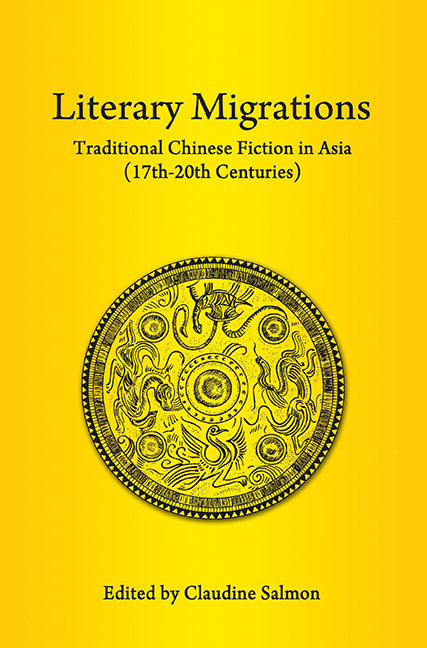Book contents
- Frontmatter
- Contents
- FOREWORD
- Dr Salmon as I Know her
- Preface to Reprint Edition
- Acknowledgements
- INTRODUCTION
- PART I KOREA AND JAPAN
- PART II MAINLAND NORTHEAST ASIA
- PART III MAINLAND SOUTHEAST ASIA
- PART IV INSULAR SOUTHEAST ASIA
- Bibliography
- Author, story-teller and translator index
- Title index
- List of Plates
- Contributors
- Plate section
FOREWORD
Published online by Cambridge University Press: 21 October 2015
- Frontmatter
- Contents
- FOREWORD
- Dr Salmon as I Know her
- Preface to Reprint Edition
- Acknowledgements
- INTRODUCTION
- PART I KOREA AND JAPAN
- PART II MAINLAND NORTHEAST ASIA
- PART III MAINLAND SOUTHEAST ASIA
- PART IV INSULAR SOUTHEAST ASIA
- Bibliography
- Author, story-teller and translator index
- Title index
- List of Plates
- Contributors
- Plate section
Summary
In human history, cultural exchanges have been a constant and normal phenomenon. The history of human civilization of thousands of years has proved that every nation, irrespective of its size and length of history, has made its own contributions to human culture in varying degrees of depth and breadth. Being a recipient and a giver at the same time, each country takes in foreign culture and sends out its own, thus enriching the common treasure house of human culture as well as its own culture.
I believe that the study of the history of human cultural exchanges is a branch of learning of tremendous significance. It will enable the people of different countries to realize what they have received and what they have offered, whereby they can, on the one hand, strengthen their own confidence and, on the other, form a correct understanding that men should help each other and that no country whatsoever can be, will be or has ever been isolated. Such an insight will greatly help to promote the friendship and understanding between countries and peoples and to strengthen their determination to safeguard world peace and forge ahead courageously toward a still greater goal.
As far as China is concerned, it is a country in the Asian continent with a history of thousands of years. Our people, valiant, industrious and intelligent, have created a culture of great brilliance. Our country is among the few in the world with ancient civilizations. What is most noteworthy is that our cultural traditions, despite the historical vicissitudes, have never been broken off. Culturally, we are also a recipient and a giver, having made brilliant contributions to the human culture as well as enriched our own. But for the several great inventions of the Chinese people, one could hardly imagine what the development of human culture would be like today.
Historically, our cultural exchanges with foreign countries followed a long and tortuous course. As for foreign culture, some of it was adopted by ourselves and some introduced by foreigners; as for Chinese culture, some of it was taken out by foreigners and some offered by ourselves. During the later period of feudal society, Western colonialists kept flocking in and the Chinese people, groaning under both national and foreign oppressions, lived in an abyss of misery.
- Type
- Chapter
- Information
- Literary MigrationsTraditional Chinese Fiction in Asia (17th–20th Centuries), pp. xi - xviPublisher: ISEAS–Yusof Ishak InstitutePrint publication year: 2013



